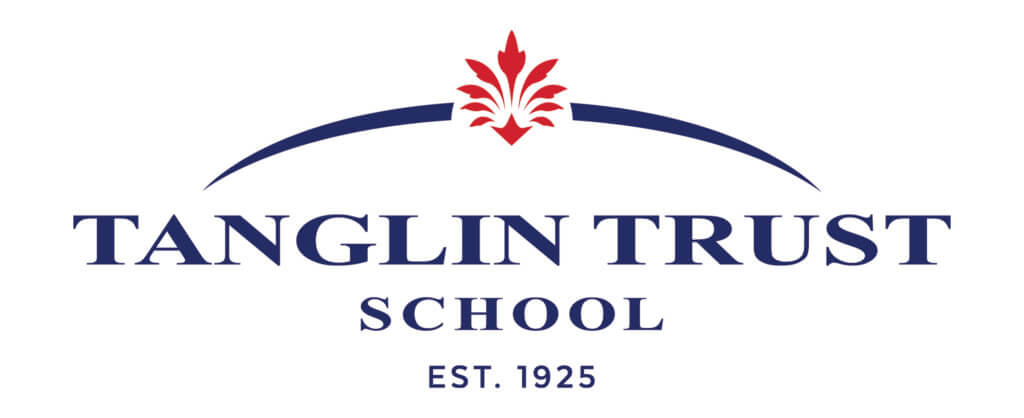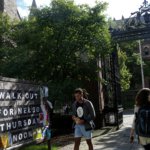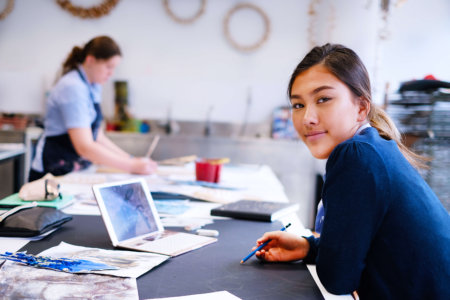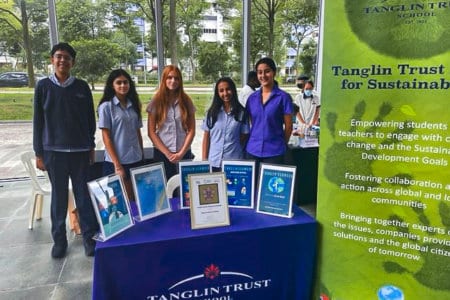In the last 10 years, the number of international schools has grown 50% globally, from 9,615 to 14,457. The number of students rose by 56% and staff by 60%, reaching 7.3 million and 693,630, respectively, according to July 2024 data from ISC Research, an organisation that analyses developments in the international school market.
For parents, this expansion has led to the question: which school do we choose? There seems to be no shortage of factors to consider: curriculum, facilities, fees, language, location, method, suitability for university. One aspect that’s important but often overlooked is how long a school has been around.
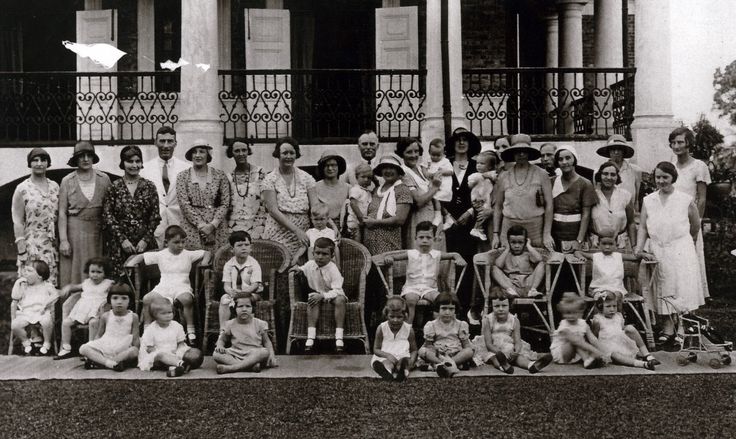
Tanglin Trust School in front of the Tanglin Club where it was founded in 1925. Source: Tanglin Trust School
All that is new does not always glitter
The word “heritage” comes from the Latin “hērēditāre” which translates to “to leave as an inheritance.” UNESCO describes it as “our legacy from the past, what we live with today, and what we pass on to future generations,” with cultural and natural heritage defined as “both irreplaceable sources of life and inspiration.”
Schools that have stood the test of time tell us a few things. The oldest in Europe — Oxford and Cambridge in England, Padova and Bologna in Italy, and Salamanca in Spain — started in Medieval times to train priests. They have developed over centuries, adapted, and stayed relevant. Traditions did not hold them back, but borrowing the words of Epictetus, served as an “anchor that keeps them grounded in the face of change.”
There are critics who dismiss the importance of a school or university’s heritage. They claim all you need are good teachers. Everything else matters little or not. To them, so what if a school is 100 years old? New is better, or so they say.
John Ridley, Director of Learning at Tanglin Trust School in Singapore, prefers to rely on data. Research and interviews with education experts show that heritage does matter. In one study of Australian public schools, parents spoke about how they “wouldn’t go” to a school with a poor reputation located in an area with “a lot of risk factors.” A school’s reputation is also one of the top reasons why the best teachers would uproot their lives and move halfway around the world.
When asked about the value of heritage, Ridley is also reminded of a well-known quote by Peter Druker, or “the man who invented management,” as BusinessWeek magazine called him. The American management consultant, educator, and author whose writings contributed to the philosophical and practical foundations of the modern business corporation once said: “Culture eats strategy for breakfast.”
In schools, Ridley said, culture is a fragile thing. Students move through grades, new staff join from other schools. In his 26 years here, he’s seen many physical changes too. There have been new buildings, almost double the number of students, and four CEOs. “At Tanglin, I feel that our heritage is the key that roots our school culture in a shared sense of purpose,” he says. “In a rapidly changing world, we have a strong sense of who we are and why we are here. Throughout all this change, the school ‘feels’ the same.”
The past is informing the future of education
That “change” Ridley speaks of is most acutely felt in what the very device you’re holding to read this article symbolises: technology. Organisations, big and small, are in an era of “digital transformation.” Close to two-thirds of companies now regularly use generative artificial intelligence. They’re seeing greater capacity to automate operations to work faster and provide greater quality goods and services.
While most schools can find the capital to buy iPads and the latest equipment, research has shown most edtech fails. For technology, or anything else that aims to expand learning, to be more than a fad, experts ask schools to leave behind an “impoverished conception of teaching and learning” and truly zero in on what works for teachers.
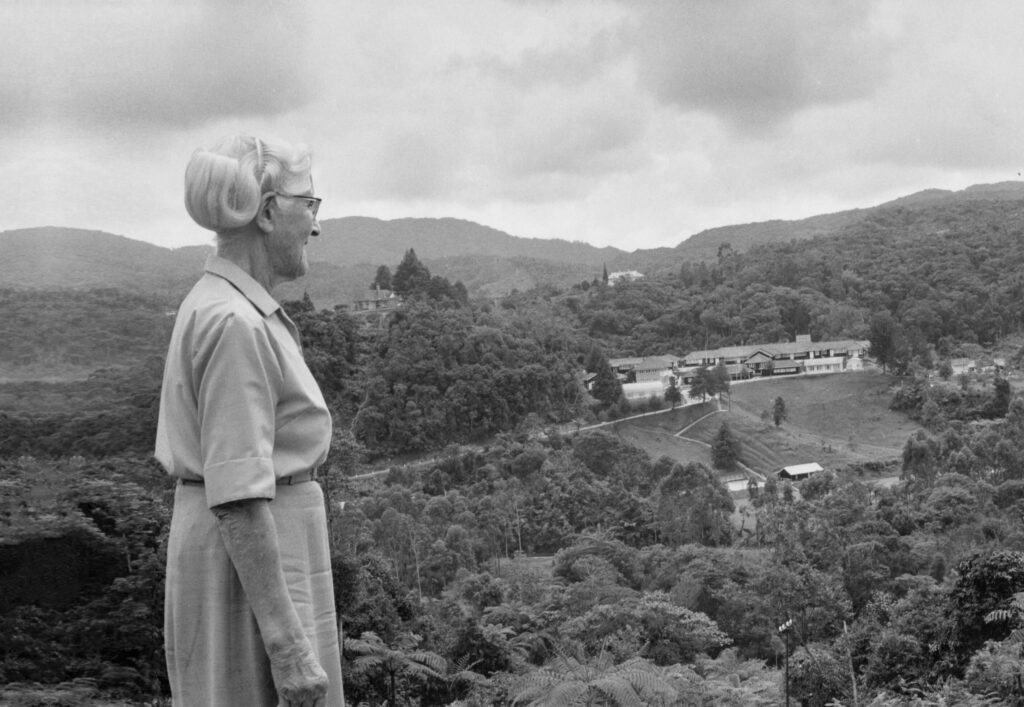
Miss Griffith-Jones looking towards the Cameron Highlands Boarding School, which inspired the Highlands Programme, Tanglin’s new experiential learning programme. Source: Tanglin Trust School
That thinking is one of the reasons why Tanglin has launched a 5-week immersive learning programme in Australia for its Year 9 students. Called the Highlands Programme, Tanglin took inspiration from the boarding school it ran in the Cameron Highlands, Malaysia in the 1930’s. That school was established to offer students a fresh and invigorating learning environment, principles which are just as important for children in today’s world. Whilst the Highlands Programme will utilise some tech in the classrooms, the emphasis will be on experiential learning in nature. The holistic approach will foster three essential attributes of curiosity, confidence and community. “Whatever we do is focused on putting students in the best place for the next step of their journey,” says Ridley.
Tanglin Trust is celebrating their 100th year this year. While the school will celebrate its history, it will also focus on the next 100 years of education. All year long, the school will be hosting a speaker series at The Institute @ Tanglin called “The Future of…” Sessions focus on robotics, work in the age of Gen AI, health industries, Asia’s economics and geopolitics, as well as smart cities. The series leverages the school’s long-established network to call distinguished speakers who can confront the challenging questions and issues faced by different industries and disciplines.
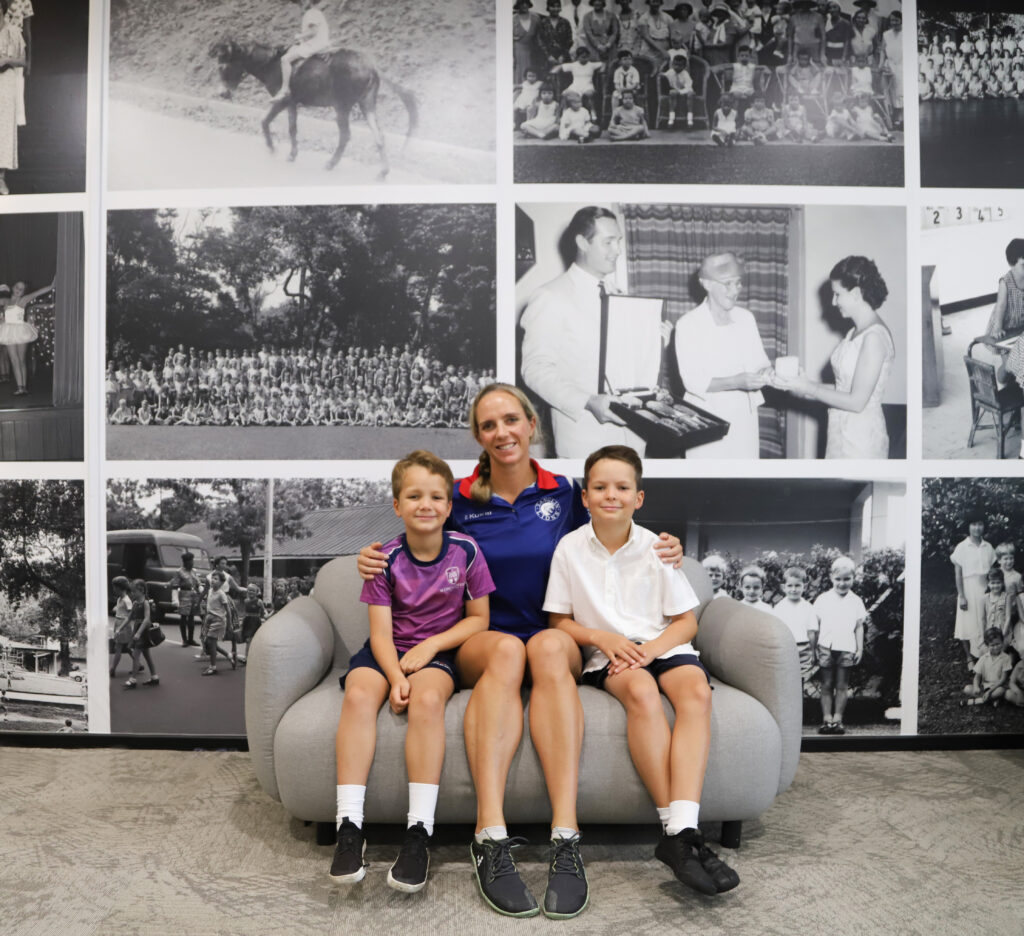
Katy Martin with her two sons. Pictured behind on the top left is a photo of her grandfather on a hinny as a boy. On the top right is a photo of her grandfather as an adult presenting a gift to Miss Griffith-Jones. Source: Tanglin Trust School
What does heritage mean for students and families?
For Katy Martin, Tanglin has laid the foundation for four generations of her family and created a deep sense of belonging. “The six family members currently at Tanglin include my husband Ross and myself as PE teachers, our children in the Junior School, and my first cousins once removed in the Senior School,” she says. “My children especially enjoy seeing old photographs of their Great-grandad around the campus and love hearing stories from their Grandad about the early days at the Tanglin Club.”
“On a deeper level I believe it helps them feel connected to a legacy of learning and community involvement. The values of respect, responsibility and purpose, deeply embedded in Tanglin’s culture, have been passed down through generations, and play a part in my children’s attitude toward learning and their overall personal development.”
With her ancestors part of the same alumni network as she is, Martin describes Tanglin’s heritage on her as “profound.” As a teacher, she’s seen the role it plays in “supporting personal growth, enhancing the learning environment, promoting inclusivity, and linking educational content to students’ real-world experiences.”
“For me, Tanglin’s emphasis on academic excellence and holistic development has reinforced the importance of a well-rounded education, combining rigorous academics with personal growth,” she says. “This approach has shaped my teaching philosophy, emphasising the balance between academic achievement and the development of character and values.”
Tanglin Trust School is celebrating its centenary all year long. Check out the opening of the Centenary Exhibition, meet Anna Buset, the Centenary Manager planning the school’s biggest celebrations.





